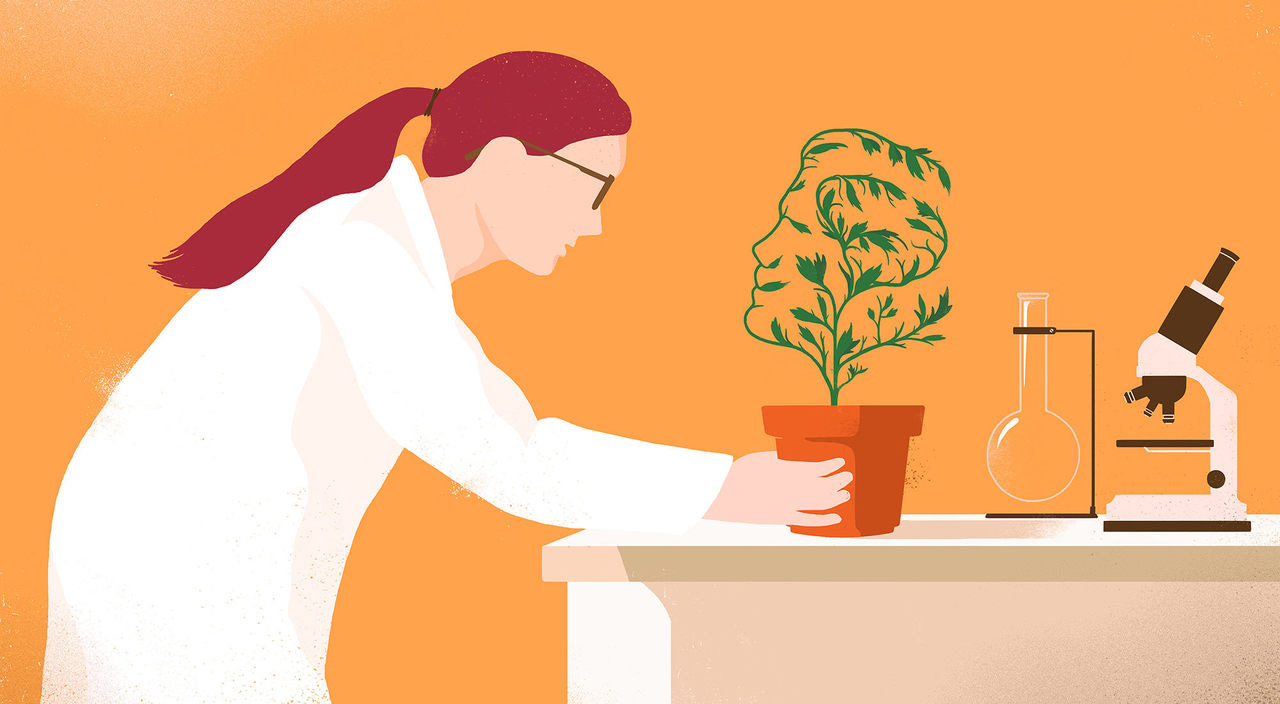Plants Learn and Remember and Adapt

from the recent Atlas Obscura article on experiments with the capabilities of plants to learn and remember:
The Hidden Memories of Plants
Inside a quiet revolution in the study of the world’s other great kingdom.
"Monica Gagliano began to study plant behavior because she was tired of killing animals. Now an evolutionary ecologist at the University of Western Australia in Perth, when she was a student and postdoc, she had been offing her research subjects at the end of experiments, the standard protocol for many animals studies. If she was to work on plants, she could just sample a leaf or a piece of root. When she switched her professional allegiance to plants, though, she brought with her some ideas from the animal world and soon began exploring questions few plant specialists probe—the possibilities of plant behavior, learning, and memory. ...In her first experiments with plant learning, Gagliano decided to test her new subjects the same way she would animals. She started with habituation, the simplest form of learning. If the plants encountered the same innocuous stimulus over and over again, would their response to it change? At the center of the experiment was the plant Mimosa pudica, which has a dramatic response to unfamiliar mechanical stimuli: Its leaves fold closed, perhaps to scare away eager herbivores. Using a specially designed rail, Gagliano introduced her M. pudica to a new experience. She dropped them, as if they were on a thrill ride in an amusement park for plants. The mimosa plants reacted. Their leaves shut tight. But as Gagliano repeated the stimulus—seven sets of 60 drops each, all in one day—the plants’ response changed. Soon, when they were dropped, they didn’t react at all. It wasn’t that they were worn out: When she shook them, they still shut their leaves tight. It was as if they knew that being dropped was nothing to freak out about." "...Gagliano wasn’t expecting the plants to keep hold of the training days later. “Then I went back six days later, and did it again, thinking surely now they forgot,” she says. “Instead, they remembered, exactly as if they had just received the training.”
"...She waited a month and dropped them again. Their leaves stayed open. According to the rules that scientists routinely apply to animals, the mimosa plants had demonstrated that they could learn.
In the study of the plant kingdom, a slow revolution is underway. Scientists are beginning to understand that plants have abilities, previously unnoticed and unimagined, that we’ve only ever associated with animals. In their own ways, plants can see, smell, feel, hear, and know where they are in the world. One recent study found that clusters of cells in plant embryos act a lot like brain cells and help the embryo to decide when to start growing.
Of the possible plant talents that have gone under-recognized, memory is one of the most intriguing. Some plants live their whole lives in one season, while others grow for hundreds of years. Either way, it has not been obvious to us that any of them hold on to past events in ways that change how they react to new challenges. But biologists have shown that certain plants in certain situations can store information about their experiences and use that information to guide how they grow, develop, or behave."
The conclusions learned from such studies will proably apply to animals, and humans. I suspect our DNA is full of "junk DNA" that usually goes unused, but gets activated under certain environmental conditions. In effect, if the world around us changes enough, we already have the DNA needed to better deal with the different conditions. That's just my expectation - that such an idea will be considered fact decades from now.

